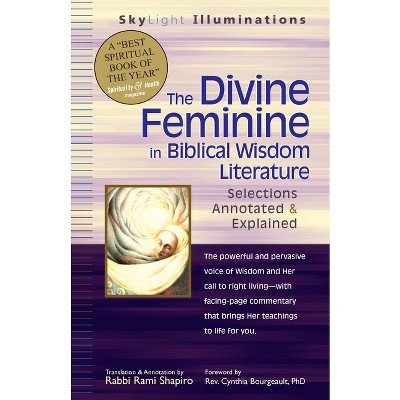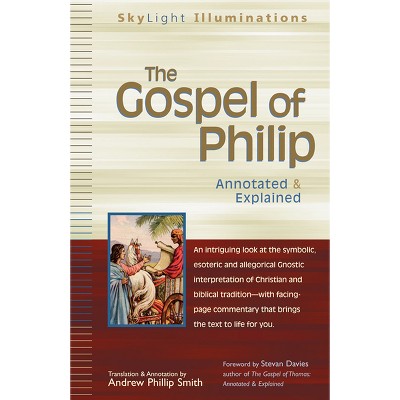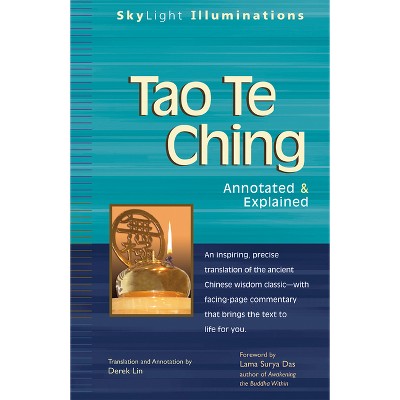Sponsored

Embracing the Divine Feminine - (SkyLight Illuminations) (Paperback)
In Stock
Sponsored
About this item
Highlights
- This fresh translation renders the Song of Songs as Lady Wisdom offering seekers physical and spiritual intimacy with her so that they might awaken to the unity of God, woman, man and nature.
- 153 Pages
- Religion + Beliefs, Biblical Commentary
- Series Name: SkyLight Illuminations
Description
About the Book
This fresh translation renders the Song of Songs as Lady Wisdom offering seekers physical and spiritual intimacy with her so that they might awaken to the unity of God, woman, man and nature. Facing-page commentary provides historical, religious and spiritual insights from Christianity and Judaism as well as comparisons to other translations.Book Synopsis
This fresh translation renders the Song of Songs as Lady Wisdom offering seekers physical and spiritual intimacy with her so that they might awaken to the unity of God, woman, man and nature. Facing-page commentary provides historical, religious and spiritual insights from Christianity and Judaism as well as comparisons to other translations.Review Quotes
Shir HaShirim, the Song of Songs by King Solomon, has been interpreted as an allegory of God's lovefor the Jewish people (and Jesus' love for the church). Rabbi Shapiro asserts that "the Song of Songsis about the realization of Wisdom through the unification of the spiritual (feminine) and the physical(masculine). The woman in the Song isn't Israel or the church but Lady Wisdom, and the man in theSong isn't God but you, the seeker of Wisdom." After several introductory chapters that discuss theorigins of the text (which may have been authored by someone who ascribed the Song to King Solomon), the feminine in Biblical texts, and love poems from ancient India, Shapiro provides his translation linedup next to his interpretation of the text. For example, although the Hebrew word tapuach translates to"apple," Shapiro deems "apricot" a better fit for fruit native to Israel and representative of the poet'sintent. In a chapter after the text, "The Path of Ecstasy: How to Use theSong of Songs," the author outlinesways to unify the spiritual and the physical. Notes and a bibliography are included in the back matter.
A prolific author, Rabbi Shapiro received ordination from Hebrew Union College and is also initiatedinto the Ramakrishna Order of Vedanta Hinduism. With a Foreword by Rev. Cynthia Bourgeault, anEpiscopal Priest, numerous references to the Divine Feminine in Eastern practices, and comparisonsto Christian ideas with quotes from the New Testament, the author embraces the publisher's mottosof "Walking Together, Finding the Way" and "For People of All Faiths, All Backgrounds." With Rabbi Shapiro's bold disagreement with Rashi's allegorical interpretation and suggestions for "a fullerecstasy" practice with a partner, this book is not for traditional Jews. It will have a place in librariesthat collect feminist-oriented literature and novel interpretations of Judaic texts, and whose patrons areinterested in comparative religion and creating their own rituals.











